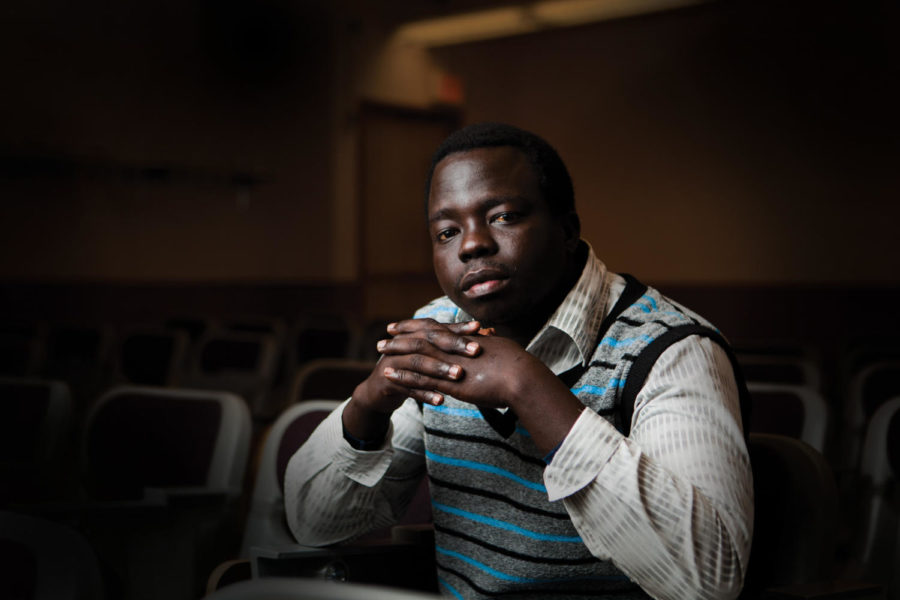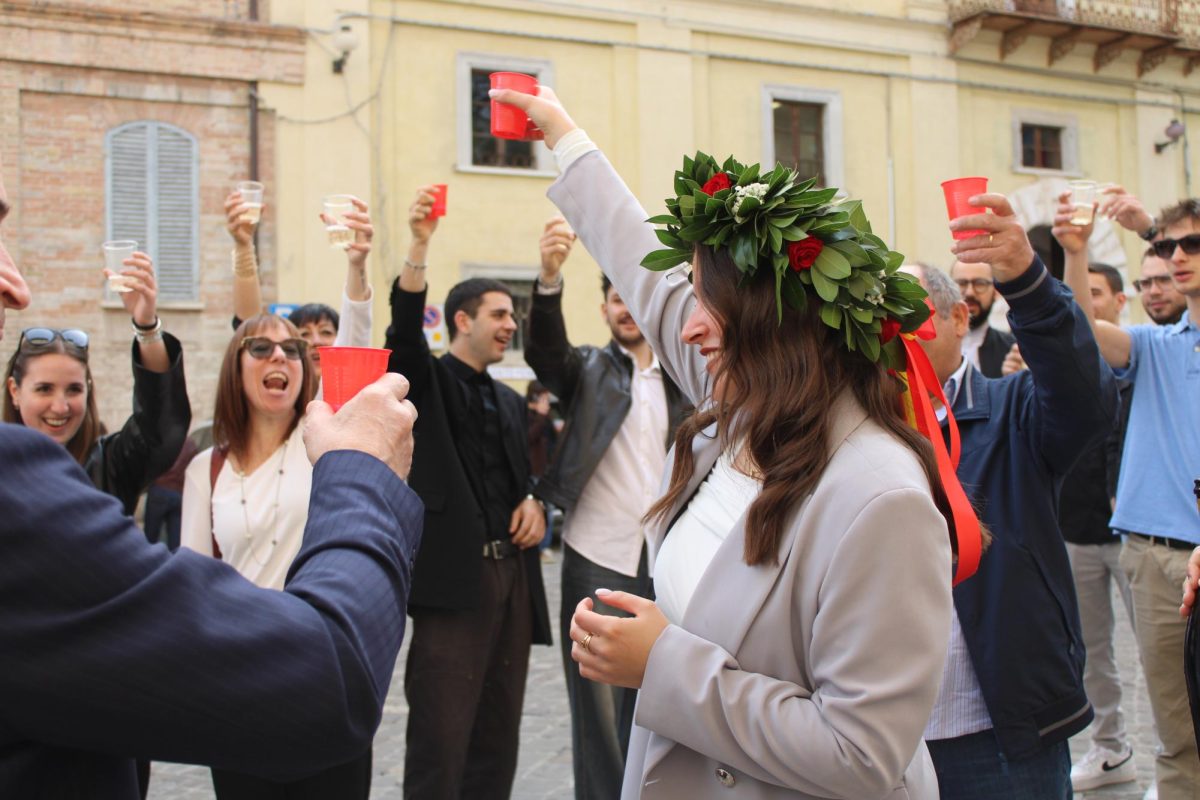Student finds peace, education at Iowa State
Photo:David Livingston/Iowa State Daily
Maurice Aduto, a junior in animal ecology, is a student from South Sudan. Aduto hopes to raise awareness of the situation in South Sudan, especially the new referendum. The current referendum gives the South Sudanese a chance to vote for their independence and form their own country. photo: David Livingston/Iowa State Daily
December 10, 2010
Maurice Aduto can’t celebrate his birthday.
Not only because his family is thousands of miles away, but because he doesn’t even know the day he was born.
Aduto, senior in animal ecology, was born in a small village in southern Sudan, near the borders of Kenya and Uganda around 1986. He lived there until 2000 when he, his brother, and uncles moved to Kenya in order for them to attend high school.
“Education is everything,” Aduto said. “We know that, and that is why we work so hard for it. Without an education, I cannot help, I cannot help others improve their lives, if I don’t know how.”
Sudan can’t provide anything more than an eighth-grade education, so the only option for many people seeking further education is to migrate to surrounding countries that offer more advanced and structured academic systems.
Although the desire for education was a motivating force for his relocation, the devastation from the war provided the biggest push for Aduto and some of his family to move from their hometown of Didinga to Kenya, and eventually come to America.
“The rebels came to my hometown in 1998, and after about a year of terror we left,” Aduto said.
“It’s very dangerous to just move from border to border — and illegal,” Aduto said. But since their town was so close to Kenya, his family was lucky enough to make it to a safe region.
Before the war came to his village, the people were at peace. His family had cattle, a home and a life full of happiness.
In 2006, along with 12 other members of his family, Aduto came to America in search of opportunities for education and safety. Aduto and his brother were sent to Des Moines, where he earned his high school diploma after finishing 12th grade at age 20.
“For me to have gotten this far is amazing,” Aduto said. “I am at Iowa State — that is huge. I never thought I would make it this far.”
A college degree is not expected in Sudan. His parents didn’t go to school, and a lot of his friends didn’t go to school.
But Aduto is living his dream at Iowa State, with a scholarship he earned and a burning desire for an education.
“I have everyone behind me with their support and blessings,” Aduto said. “My family, my friends, the tribe, community, country, all of the world — because everyone wants for us to have success.”
There is peace in Ames. Students here at Iowa State do not have the fear that dictated daily life back in Sudan, Aduto said.
“All these years we’ve been second citizens, and I don’t need to be a second citizen anymore,” Aduto said.
With the referendum vote taking place on Jan. 9, 2011, South Sudan may finally be given the opportunity to be equal citizens and end the racial oppression that has occurred since conflicts arose between North and South Sudan more than 50 years ago.
“We’ve been fighting for it for 21 years,” Aduto said. “Running around for safety in a time of turmoil.”
Arab Muslim North and Black Christian South have been in a battle for land, oil, political power and racial superiority for decades, and there will still be conflicts even after the referendum, said Richard Mansbach, professor of political science.
“Let’s be clear here, this isn’t a war between good and bad,” Mansbach said. “This is a battle between bad and worse. Everyone is to blame in this situation.”
Omar Al-Bashir, president of South Sudan, has been on pending charges for war crimes committed in the region of Darfur. He has been charged with counts of genocide, but due to current conflicts, no charges have been instated.
There will be a split, Mansbach said, it’s just not known if it will be a violent or peaceful one.
The vote is between either succession or unity and will change the nation. If Sudan splits in two, there will be one more country in the middle of trade, international affairs and potentially another ally added to the United States. If the country stays united then there is still a risk that oppression will continue in the south and tensions will grow worse in other areas such as Darfur.
“We are building up from zero,” Aduto said. “Everything else has been demolished from during the war times, but we are ready.”
“The war of north and south is something that you live through,” Aduto said. “I was born in it and I grew up in it. Most people are born into it, grow up in it and then die in it. It’s not something you experience for one moment; you live in it. We spent 21 years running around looking for safety and protection, and it’s still not over.”
Aduto serves as the president of the South Sudanese Student Association and hopes to go back to Sudan after completing his degree from Iowa State, or after going to graduate school.
“I have been given the opportunity and have worked hard for this,” Aduto said. “I must go back so I can educate other people, and help others. It’s not about money, it’s about happiness. And even in the midst of the war, my people have never lost hope.”

















